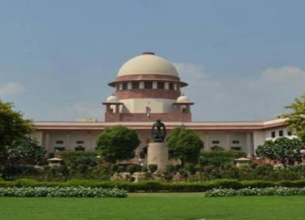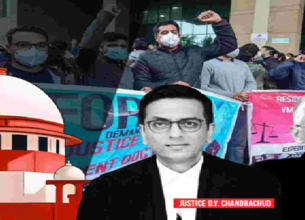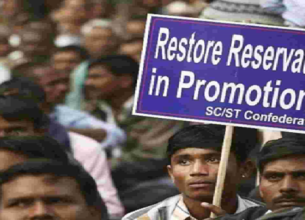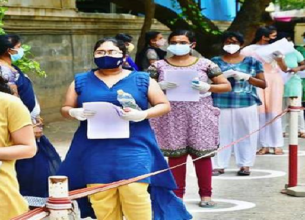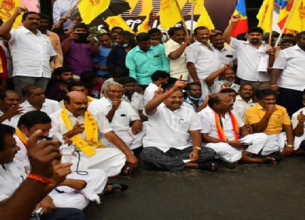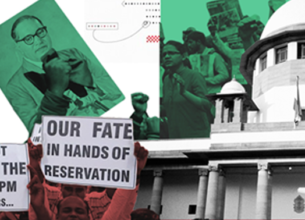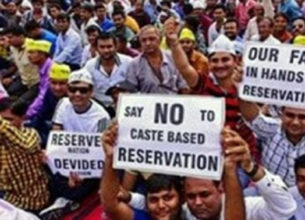RESERVATIONS IN PROMOTION IS NOT A FUNDAMENTAL RIGHT, SAYS SC
11, Feb 2020
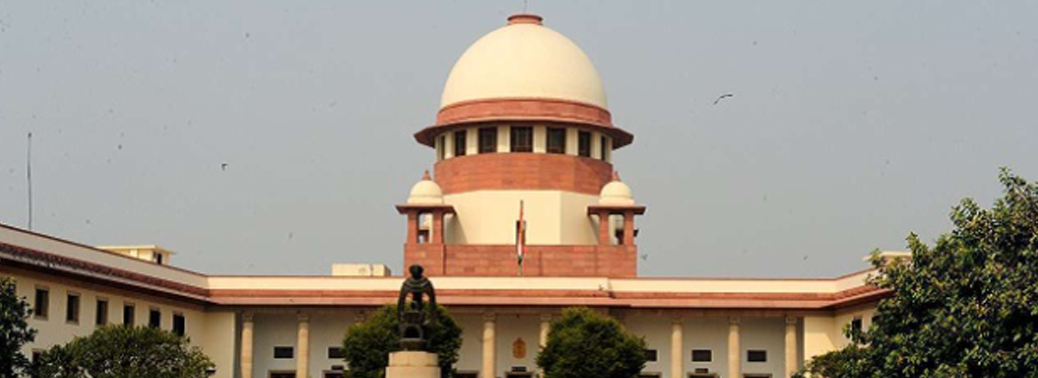
Prelims level : Rights Issues
Mains level : GS-II Welfare schemes for vulnerable sections of the population by the Centre and States and the performance of these schemes; mechanisms, laws, institutions and Bodies constituted for the protection and betterment of these Vulnerable Sections
Why in News?
- The Supreme Court has recently ruled that the states are not bound to provide reservation in appointments and promotions and that there is no Fundamental Right to Reservation in Promotions.
What are the Constitutional Provisions Related to Reservations?
- Article 16(4) empowers the state to make any provision for the reservation of appointments or posts in favour of any backward class of citizens which, in the opinion of the state, is not adequately represented in the services under the state.
- By way of the 77thAmendment Act, a new clause (4A) was added to Article 16, empowering the state to make provisions for reservation in matters of promotion to Scheduled Caste/Scheduled Tribe Employees if the state feels they are not adequately represented in services.
- Article 335 recognises that special measures need to be adopted for considering the claims of SCs and STs in order to bring them to a level-playing field.
What are the Court’s Earlier Rulings?
- In its landmark 1992 decision in Indra Sawhney vs Union of India, the Supreme Court had held that reservations under Article 16(4) could only be provided at the time of entry into Government Service but not in matters of Promotion.
- It added that the principle would operate only prospectively and not affect promotions already made and that reservation already provided in promotions shall continue in operation for a period of five years from the date of the Judgment.
- It also ruled that the creamy layer can be and must be excluded.
- On June 1995, Parliament adopted the seventy-seventh amendment by which clause (4A) was inserted into Article 16 to enable reservation to be made in promotion for SCs and STs.
- The validity of the seventy-seventh and eighty-fifth amendments to the Constitution and of the legislation enacted in pursuance of those amendments was challenged before the Supreme Court in the Nagaraj case.
- Upholding the validity of Article 16 (4A), the court then said that it is an enabling provision. “The State is not bound to make reservation for the SCs and STs in promotions. But, if it seeks to do so, it must collect quantifiable data on three facets — the backwardness of the class; the inadequacy of the representation of that class in public employment; and the general efficiency of service as mandated by Article 335 would not be affected”.
- The court ruled that the constitutional amendments do not abrogate the Fundamentals of Equality.
What is the Supreme Court’s Recent Ruling?
- Reservation in promotion in public posts cannot be claimed as a Fundamental Right.
- Articles 16 (4) and 16 (4-A) of the Constitution does not confer individuals with a fundamental right to claim reservation in promotion.
- It only empowers the State to make a reservation in matters of appointment and promotion in favour of the backward class and SC’s/ST’s respectively, only if in the opinion of the State they are not adequately represented in the services of the State.
- State Governments are not bound to make a reservation and have discretion in providing reservations.
- The judgment also noted that even the courts could not issue a Mandamus directing the States to provide reservation.
What is its Significance?
- The provision is an aid of fostering the real and substantive right to equality to the SCs and STs.
- It protects the authority of the Union and the States to adopt any of these special measures, to effectuate a realistic (as opposed to a formal) consideration of their claims to appointment in services and posts under the Union and the states.
- It also emphasizes that the need to maintain the efficiency of administration cannot be construed as a fetter on adopting these special measures designed to uplift and protect the welfare of the SCs and STs.
Need of an Hour:
- Centuries of discrimination and prejudice suffered by the SCs and STs in a feudal, caste-oriented societal structure poses real barriers of access to opportunity.
- The provision contains a realistic recognition that unless special measures are adopted for the SCs and STs, the mandate of the Constitution for the consideration of their claim to appointment will remain illusory.



